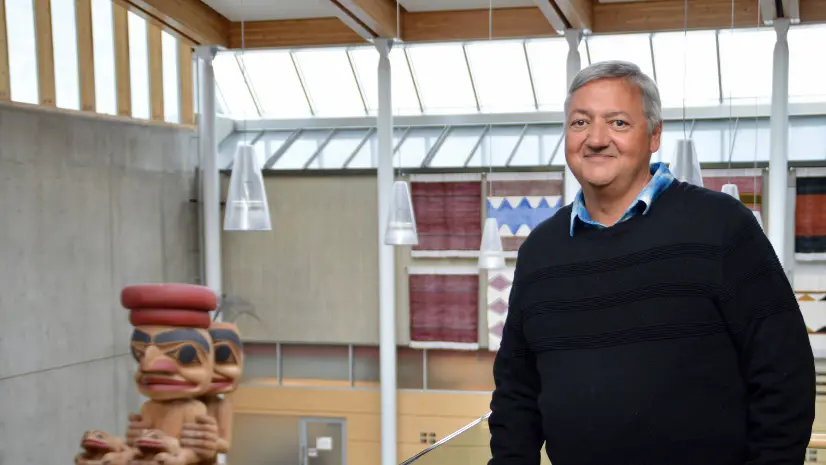When Dr. Jeff Reading looks at Canada’s Indigenous communities, he sees tremendous strengths — including powerful cultural traditions, resilience and spiritual connection to the land. And he wants to harness every element of those strengths as he tackles the steep health challenges facing Indigenous peoples.
Dr. Reading holds the BC First Nations Health Authority Chair in Heart Health and Wellness at St. Paul’s Hospital and Simon Fraser University in Vancouver. The position, co-funded by Heart & Stroke donors, is a global first, placing a holistic focus on Indigenous heart health to drive research and improve outcomes.
The need could not be more urgent. Rates of heart disease among Indigenous (First Nations, Métis and Inuit) people in Canada are up to 50% higher than the general population. Although 80% of premature heart disease and stroke is preventable, there are many barriers to prevention, such as access to healthy food and safe drinking water.
Dr. Reading, a Mohawk from the Tyendinaga First Nation in Ontario, is aiming high. “One of my main goals is to narrow the gap in heart and brain health for Indigenous peoples by working to create conditions where the future generations of First Nations peoples will have equal opportunities as do other Canadians, to experience optimal physical, emotional and spiritual health.”
His responsibilities include leading research to develop health promotion strategies that incorporate First Nations history, culture and spirit, and producing health research knowledge for policies and programs.
We asked Dr. Reading, a professor of health sciences at Simon Fraser University, about the impact he hopes to have.
What is your vision for this position?
The BC First Nations Health Authority Chair is mandated to foster interdisciplinary and community based research on First Nations heart and vascular health and disseminate research based knowledge by fostering collaborations. The vision is a collective one that works across institutions. The vision is for a better future for Indigenous peoples related to improving heart and vascular health.
What are you most excited to tackle first?
Developing a comprehensive overall strategy and action framework is the first priority. The chair has a commitment to advanced knowledge creation and mobilization for societal benefit, and a special emphasis on applied heart health research that engages and involves the First Nations community. We’ll be working together to create, understand and begin to solve First Nations heart health issues with a specific goal of improving the quality and appropriateness of heart health services and to assist in developing innovative health programs and policy for First Nations peoples, communities, supporters, allies and leaders.
There are profound gaps in health for First Nations for almost every indicator.
What do you see as the biggest challenges?
The biggest challenge is having organizations and their strategic priorities aligned to be part of Indigenous heart health equity that addresses disparities. Reconciliation of historic and present day health disparities involves rethinking and implementing change to all the determinants of heart health and wellness.
Where is the need greatest?
There are profound gaps in health for First Nations for almost every indicator in health measurement. Given a rapidly growing population and the lack of meaningful social policy change, the challenges are a growing concern. The key is to acknowledge the corrosive health effects of poverty and to develop and implement health programs and policy, and to fund promising intervention to narrow the expanding gap in health and wellbeing all along the journey through life.
Where would you like to be with your research five years from now?
I-HEART (Indigenous - health, education, access to healthcare services, research and treatment) is the model program currently being created, and in five years we hope to have developed I-HEART into a solid platform that compliments the First Nations Health Authority Heart Health strategy and action plan for improving Indigenous heart health and wellness.
The support from Heart & Stroke is key to both the FNHA Chair in Heart Health and Wellness and the new I-HEART Centre, as concrete examples of leadership in British Columbia and national level cooperation and collaboration.
- Learn what Heart & Stroke is doing in Indigenous health
